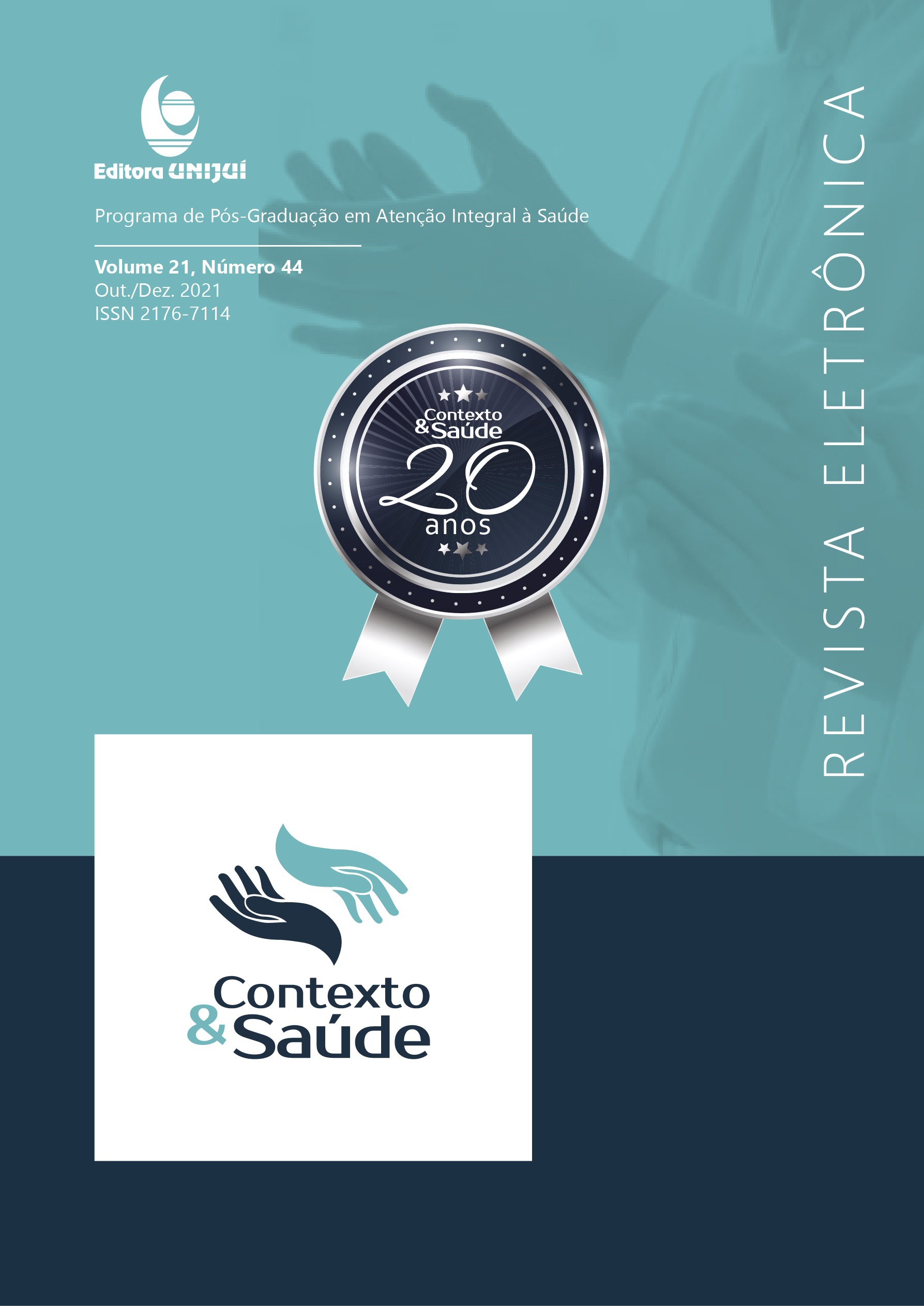Sedentary behavior and physical activity are independently associated with obesity in Brazilian adolescents: a quantile regression analysis
COMPORTAMENTO SEDENTÁRIO E ATIVIDADE FÍSICA SÃO INDEPENDENTEMENTE ASSOCIADOS À OBESIDADE EM JOVENS BRASILEIROS: UMA ANÁLISE DE REGRESSÃO QUANTÍLICA
DOI:
https://doi.org/10.21527/2176-7114.2021.44.10337Keywords:
Sedentary Lifestyle, Motor Activity, Nutritional Status, Cross-Sectional StudiesAbstract
Objective: to test the association of SB and moderate to vigorous physical activity (MVPA) with body mass index (BMI) in a representative sample of Brazilian young people. Methods: This is a cross-sectional school-based study (n = 1,023), including adolescents (14-21y; 54% female) from public and private schools in a Brazilian city. The survey was conducted in 2015 and the adolescents self-reported SB (screen time) and MVPA. Height and body mass were measured to calculate BMI. Quantile regression was used to investigate the association between SB, MVPA and BMI distribution percentiles (P10 ..., P90; statistical significance p <.01). Results: SB and MVPA were associated with higher and lower BMI values, respectively. Quantile regression revealed that the associations were nonlinear and stronger in the upper BMI percentiles. Also, in the adjusted models (SB and MVPA in the same model), the associations were enhanced for MVPA. For example, each additional hour of MVPA at P10 was associated with −0.05 (p <.01) lower BMI value, against −0.09 at P50 (p <.01) and even lower at P90, −0.24 (p <.01). Conclusion: SB and MVPA were independently and nonlinearly associated with BMI in our sample of Brazilian youth. The associations were more notable in the higher percentiles of the BMI distribution. Our findings suggest that nonlinearity between exposures and outcome should be considered when proposing future strategies for pediatric obesity prevention.
Downloads
Published
How to Cite
Issue
Section
License

This work is licensed under a Creative Commons Attribution 4.0 International License.
By publishing in Revista Contexto & Saúde, authors agree to the following terms:
The works are licensed under the Creative Commons Atribuição 4.0 Internacional (CC BY 4.0) license, which allows:
Share — to copy and redistribute the material in any medium or format;
Adapt — to remix, transform, and build upon the material for any purpose, including commercial.
These permissions are irrevocable, provided that the following terms are respected:
Attribution — authors must be properly credited, with a link to the license and indication of any changes made.
No additional restrictions — no legal or technological measures may be applied that restrict the use permitted by the license.
Notes:
The license does not apply to elements in the public domain or covered by legal exceptions.
The license does not grant all rights necessary for specific uses (e.g., image rights, privacy, or moral rights).
The journal is not responsible for opinions expressed in the articles, which are the sole responsibility of the authors. The Editor, with the support of the Editorial Board, reserves the right to suggest or request modifications when necessary.
Only original scientific articles presenting research results of interest that have not been published or simultaneously submitted to another journal with the same objective will be accepted.
Mentions of trademarks or specific products are intended solely for identification purposes, without any promotional association by the authors or the journal.
License Agreement (for articles published from September 2025): Authors retain copyright over their article and grant Revista Contexto & Saúde the right of first publication.

